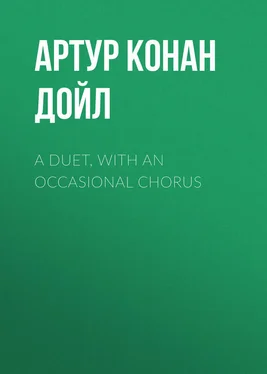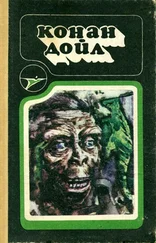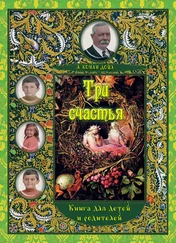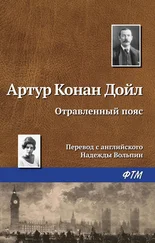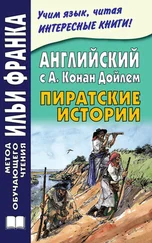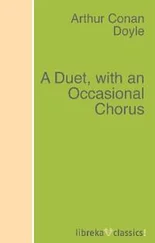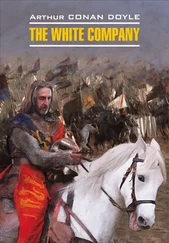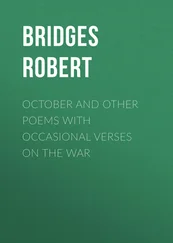Артур Дойл - A Duet, with an Occasional Chorus
Здесь есть возможность читать онлайн «Артур Дойл - A Duet, with an Occasional Chorus» — ознакомительный отрывок электронной книги совершенно бесплатно, а после прочтения отрывка купить полную версию. В некоторых случаях можно слушать аудио, скачать через торрент в формате fb2 и присутствует краткое содержание. Жанр: foreign_antique, foreign_prose, на английском языке. Описание произведения, (предисловие) а так же отзывы посетителей доступны на портале библиотеки ЛибКат.
- Название:A Duet, with an Occasional Chorus
- Автор:
- Жанр:
- Год:неизвестен
- ISBN:нет данных
- Рейтинг книги:4 / 5. Голосов: 1
-
Избранное:Добавить в избранное
- Отзывы:
-
Ваша оценка:
- 80
- 1
- 2
- 3
- 4
- 5
A Duet, with an Occasional Chorus: краткое содержание, описание и аннотация
Предлагаем к чтению аннотацию, описание, краткое содержание или предисловие (зависит от того, что написал сам автор книги «A Duet, with an Occasional Chorus»). Если вы не нашли необходимую информацию о книге — напишите в комментариях, мы постараемся отыскать её.
A Duet, with an Occasional Chorus — читать онлайн ознакомительный отрывок
Ниже представлен текст книги, разбитый по страницам. Система сохранения места последней прочитанной страницы, позволяет с удобством читать онлайн бесплатно книгу «A Duet, with an Occasional Chorus», без необходимости каждый раз заново искать на чём Вы остановились. Поставьте закладку, и сможете в любой момент перейти на страницу, на которой закончили чтение.
Интервал:
Закладка:
‘But this is a new lot. There are nine of the present team who have never played in England before.’
‘They are very good, are they not?’
‘Very good indeed. And the dry summer has helped them. It is the sticky English wickets which put them off. The wickets are very fast over there. Giffen is their best all-round man, but Darling and Iredale and young Hill are good enough for anything. Well, then – O Lord, what a pity!’
He had turned towards the window as he rose, and saw one of those little surprises by which Nature relieves the monotony of life in these islands. The sun had gone, a ragged slate-coloured cloud was drifting up from over the river, and the rain was falling with a soft persistency which is more fatal than the most boisterous shower. There would be no more cricket that day.
‘Two coffees and two benedictines,’ cried Frank, and they relapsed into their chairs. But a half-hour passed and the grey cloud was thicker and the rain more heavy. The cheerless leaden river flowed slowly under drifting skies. Beyond an expanse of shining pavement the great black Abbey towered amidst the storm.
‘Have you ever done the Abbey, Maude?’
‘No, Frank; I should love to.’
‘I have only been once – more shame to me to say so! Is it not a sin that we young Englishmen should be familiar with every music-hall in London and should know so little of this which is the centre of the British race, the most august and tremendous monument that ever a nation owned. Six hundred years ago the English looked upon it as their holiest and most national shrine, and since then our kings and our warriors and our thinkers and our poets have all been laid there, until there is such an accumulation that the huge Abbey has hardly space for another monument. Let us spend an hour inside it.’
They made for Solomon’s porch, since it was the nearest and they had but the one umbrella. Under its shelter they brushed themselves dry before they entered.
‘Whom does the Abbey belong to, Frank?’
‘To you and me!’
‘Now you are joking!’
‘Not at all. It belongs in the long-run to the British taxpayer. You have heard the story of the Scotch visitor who came on board one of our battleships and asked to see the captain. “Who shall I say?” said the sentry. “One of the proprietors,” said the Scotchman. That’s our position towards the Abbey. Let us inspect our property.’
They were smiling as they entered, but the smile faded from their lips as the door closed behind them. In this holy of holies, this inner sanctuary of the race, there was a sense of serene and dignified solemnity which would have imposed itself upon the most thoughtless. Frank and Maude stood in mute reverence. The high arches shot up in long rows upon either side of them, straight and slim as beautiful trees, until they curved off far up near the clerestory and joined their sister curves to form the lightest, most delicate tracery of stone. In front of them a great rose-window of stained glass, splendid with rich purples and crimsons, shone through a subdued and reverent gloom. Here and there in the aisles a few spectators moved among the shadows, but all round along the walls two and three deep were ranged the illustrious dead, the perishable body within, the lasting marble without, and the more lasting name beneath. It was very silent in the home of the great dead – only a distant footfall or a subdued murmur here and there. Maude knelt down and sank her face in her hands. Frank prayed also with that prayer which is a feeling rather than an utterance.
Then they began to move round the short transept in which they found themselves – a part of the Abbey reserved for the great statesmen. Frank tried to quote the passage in which Macaulay talks about the men worn out by the stress and struggle of the neighbouring parliament-hall, and coming hither for peace and rest. Here were the men who had been strong enough to grasp the helm, and who, sometimes wisely, sometimes foolishly, but always honestly, had tried to keep the old ship before the wind. Canning and Peel were there, with Pitt, Fox, Grattan and Beaconsfield. Governments and oppositions moulder behind the walls. Beaconsfield alone among all the statues showed the hard-lined face of the self-made man. These others look so plump and smooth one can hardly realise how strong they were, but they sprang from those ruling castes to whom strength came by easy inheritance. Frank told Maude the little which he knew of each of them – of Grattan, the noblest Irishman of them all, of Castlereagh, whose coffin was pursued to the gates of the Abbey by a raging mob who wished to tear out his corpse, of Fox the libertine philosopher, of Palmerston the gallant sportsman, who rode long after he could walk. They marvelled together at the realism of the sculptor who had pitted Admiral Warren with the smallpox, and at the absurdity of that other one who had clad Robert Peel in a Roman toga.
Then turning to the right at the end of the Statesmen’s Transept, they wandered aimlessly down the huge nave. It was overwhelming, the grandeur of the roof above and of the contents below. Any one of hundreds of these tombs was worth a devout pilgrimage, but how could one raise his soul to the appreciation of them all. Here was Darwin who revolutionised zoology, and here was Isaac Newton who gave a new direction to astronomy. Here were old Ben Jonson, and Stephenson the father of railways, and Livingstone of Africa, and Wordsworth, and Kingsley, and Arnold. Here were the soldiers of the mutiny – Clyde and Outram and Lawrence, – and painters, and authors, and surgeons, and all the good sons who in their several degrees had done loyal service to the old mother. And when their service was done the old mother had stretched out that long arm of hers and had brought them home, and always for every good son brought home she had sent another forth, and her loins were ever fruitful, and her children loving and true. Go into the Abbey and think, and as the nation’s past is borne in upon you, you will have no fear for its future.
Frank was delighted with some of the monuments and horrified by others, and he communicated both his joy and his anger to Maude. They noticed together how the moderns and the Elizabethans had much in common in their types of face, their way of wearing the hair, and their taste in monuments, while between them lie the intolerable affectations – which culminated towards the end of last century.
‘It all rings false – statue, inscription, everything,’ said Frank. ‘These insufferable allegorical groups sprawling round a dead hero are of the same class as the pompous and turgid prose of Doctor Johnson. The greatest effects are the simplest effects, and so it always was and so it always will be. But that little bit of Latin is effective, I confess.’
It was a very much defaced inscription underneath a battered Elizabethan effigy, whose feet had been knocked off, and whose features were blurred into nothing. Two words of the inscription had caught Frank’s eye.
‘ Moestissima uxor ! It was his “most sad wife” who erected it! Look at it now! The poor battered monument of a woman’s love. Now, Maude, come with me, and we shall visit the famous Poets’ Corner.’
What an assembly it would be if at some supreme day each man might stand forth from the portals of his tomb. Tennyson, the last and almost the greatest of that illustrious line, lay under the white slab upon the floor. Maude and Frank stood reverently beside it.
‘“Sunset and evening Star
And one clear call for me.”’
Frank quoted. ‘What lines for a very old man to write! I should put him second only to Shakespeare had I the marshalling of them.’
‘I have read so little,’ said Maude.
‘We will read it all together after next week. But it makes your reading so much more real and intimate when you have stood at the grave of the man who wrote. That’s Chaucer, the big tomb there. He is the father of British poetry. Here is Browning beside Tennyson – united in life and in death. He was the more profound thinker, but music and form are essential also.’
Читать дальшеИнтервал:
Закладка:
Похожие книги на «A Duet, with an Occasional Chorus»
Представляем Вашему вниманию похожие книги на «A Duet, with an Occasional Chorus» списком для выбора. Мы отобрали схожую по названию и смыслу литературу в надежде предоставить читателям больше вариантов отыскать новые, интересные, ещё непрочитанные произведения.
Обсуждение, отзывы о книге «A Duet, with an Occasional Chorus» и просто собственные мнения читателей. Оставьте ваши комментарии, напишите, что Вы думаете о произведении, его смысле или главных героях. Укажите что конкретно понравилось, а что нет, и почему Вы так считаете.
